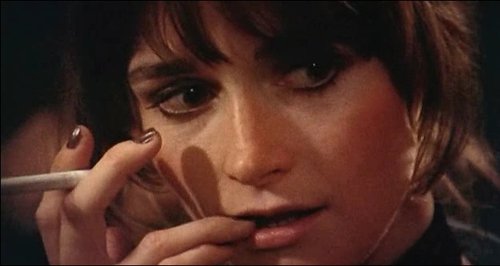
Black Christmas: A Dark Universe
Christmas has come and gone, and after two years of dread-filled build-up for obvious (familial tensions; economic worry) and not-so-obvious (whose ominous cold symptoms will cancel the party?) reasons, the world has had to adjust to alternative ways of carrying on with time-tested traditions.
Thankfully, the annual “Is Die Hard a Christmas movie?” debate on social media will always keep us grounded in a sense of banal reality.
However, with 1974’s Black Christmas, there’s no need for debate: it’s nigh-indisputable as one of horror’s grandest and most transgressive takes on a time of year usually reserved for punishing musical selections and force-fed commercial “cheer.”
But what of its 2006 and 2019 remakes, and the films that circle their orbit in terms of style and theme?
Below you’ll find my takes on each version of Black Christmas, along with genre efforts that seem indirectly(?) influenced by each. These may not be holiday films, but still wrap the spirit of this unofficial cinematic universe up in a bloody little bow.
From the 1970s…
Black Christmas (1974)
Some folks like the overt slasher gore and Santa-suit symbolism of Silent Night, Deadly Night and its sequels; others gravitate toward the not-really-family-friendly monster antics of Gremlins. But Bob Clark’s masterpiece remains the gold standard for holiday horror, welding incisive commentary to a tale of Christmas break at a lonely sorority house, where an unseen killer hiding in the attic stalks the remaining girls (including Olivia Hussey and an iconic Margot Kidder). The Canadian-lensed film contains genuine chills in its snow-covered landscapes, night scenes, and the old-school tracing of a phone call. And how unsettling is that end-credits crawl? 4.5 out of 5 stars
Compare to…
The House on Sorority Row (1982)
We learn precious little about “Billy” in Black Christmas, and our sorority pledges face a similarly ill-defined assailant here. While the setting swaps the cold of winter for a school-year-ending house party, the stalking remains suspenseful and surprising. Our killer also carries a nostalgia for the creepy attic room where he was raised. Writer-director Mark Rosman isn’t forthcoming with logical motivations for his characters (heroes and villain alike), but the film is helped tremendously by an urgent pace and a trippy final act. 4 out of 5 stars
…to the 2000s…
Black Christmas (or Black X-Mas) (2006)
Per the Dimension Films norm, writer-director Glen Morgan’s (Willard) colorful and gory take on Bob Clark’s film was the victim of extensive reshoots (observe the three(!) alternate endings on the DVD). That said, the filmmaker’s approach is distinctive: exploring the tortured backstory of attic-dwelling Billy, Morgan indulges incest, cannibalism, and campy grotesquery with stylish relish. Andrea Martin (Phyl in the ’74 version) assumes housemother duties, and the capable young cast includes a pre-stardom Mary Elizabeth Winstead (10 Cloverfield Lane). Even if the excess gore wasn’t part of Morgan’s original intent, this still evokes a dark-humored holiday slaughterhouse in a Tobe Hooper vein. 3 out of 5 stars
Compare to…
Random Acts of Violence (2019)
Based on a comic by Jimmy Palmiotti and Justin Gray, director-cowriter-star Jay Baruchel (This is the End) touches on the intersection between violent art and social obligation. Jesse Williams (The Cabin in the Woods) stars as the creator of an ultraviolent comic-book series. During a cross-country promotional tour, his entourage is stalked by a serial killer quoting from his creation. Vivid, baroque tableaux in a Dario Argento vein ensue. The color and lighting schemes echo Morgan’s film, and the violence toes a similar line between horrific and outrageous. And a key, character-defining flashback presents Christmas as the most soul-scarring time of year. 3 out of 5 stars
…and Beyond…
Black Christmas (2019)
Blumhouse ain’t subtle, and this third take on Black Christmas is no exception. The first 20 minutes are so loaded with heavy-handed messaging that viewers could be forgiven for shutting it off. However, the film picks up from that point, focusing on characterization and a palpable sense of isolation for our staying-behind-for-winter-break sorority pledges. Unlike previous iterations of the story, director Sophia Takal (who co-wrote the script with April Wolfe) inserts an occult angle to complement its deconstruction of institutionalized misogyny. Is it entirely successful? No, but it deserves credit for attempting something different, and Imogen Poots’ powerful lead performance lends the film a solid backbone. 3 out of 5 stars
Compare to…
Initiation (2020)
The beginning is deceptively typical: a frat party where drunk guys and gals act shrill and obnoxious while their text messages are superimposed on-screen in a visual-effects frenzy. But stick with it, because Initiation subverts expectations after that, detailing a surprisingly straight-faced slasher centering on the aftermath of a sexual assault. Director/co-writer John Berardo blends genuine suspense with strong performances from a talented young cast. The violence is on the level of The Toolbox Murders (either version), and the film handles serious material with more assured – and far more savage – skill than Black Christmas ’19. 3.5 out of 5 stars
The Plot Sickens: Did Jonny Numb hate Ghostbusters: Afterlife?
Crash Analysis Support Team

Jonny Numb
Jonny Numb (aka Jonathan Weidler) is only unstoppable when it comes to word count. He co-hosts The Last Knock horror podcast with Billy Crash, and his writing can also be found at The Screening Space.
THE LAST KNOCK horror podcast is a Crash Palace Productions’ featured show. Besides this site, you can find THE LAST KNOCK on iTunes and Spotify and more, with new shows posted every other Sunday at 9 PM ET.
Crash Palace Productions website design and creation from Brian Yount Digital Enterprises with banner and THE LAST KNOCK art from Palko Designs. Logo designs from Paul Belci.
(Black Christmas movie still from August Films.)
